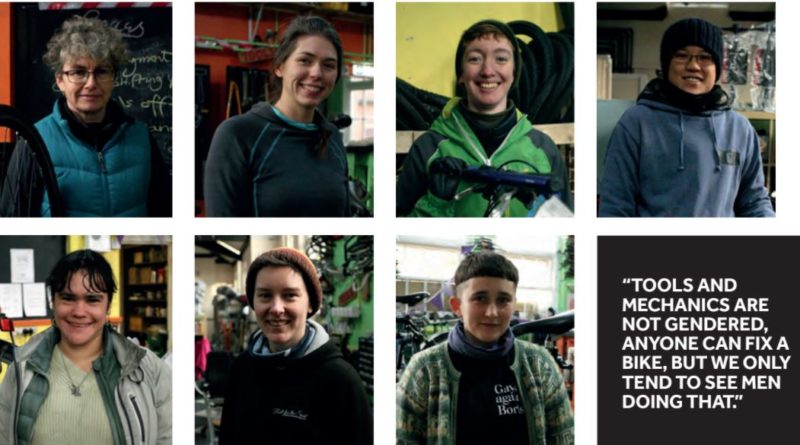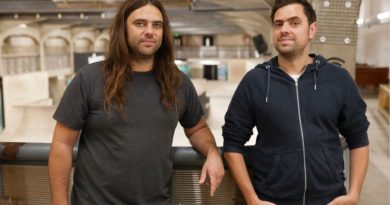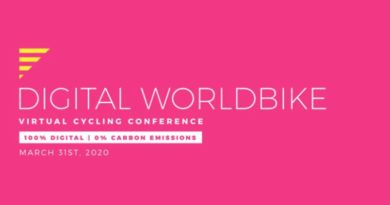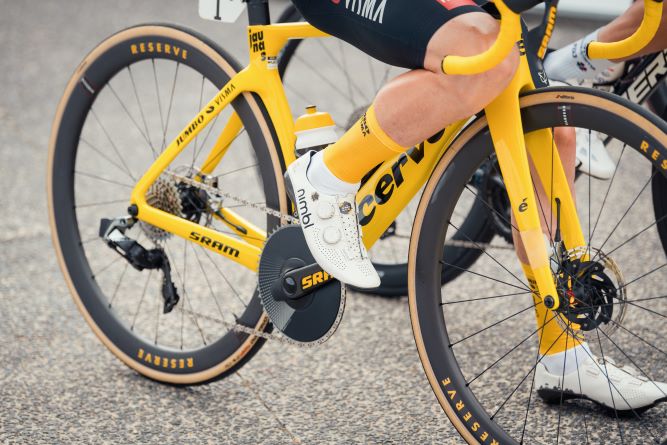How two workshops are taking on the challenge of bike retail diversity
With demand for workshop staff at a high, and cycle mechanics in demand following last year’s bike boom, a pair of community-focused bike workshops are attempting to bring diversity to a workforce that represents an increasingly broad community of cyclists. Laura Laker reports…
Last year women took to two wheels in record numbers, encouraged by quiet roads and mandated daily exercise while for the first time Black, Asian and minority ethnic Londoners were as likely to have cycled in the previous year as white Londoners.
Cycle shops tell CIN the workshop was the biggest growing area of the business in 2020, with around a third looking to invest in the workshop (38%) or staff training (32%).
In the autumn both Bike for Good cycle charity in Glasgow and Broken Spoke Bike Coop in Oxford launched cycle mechanic training and mentorship programmes aimed at women and non- binary folks after realising that, while in theory anyone can apply for a mechanic role, in reality many people didn’t feel welcome to.
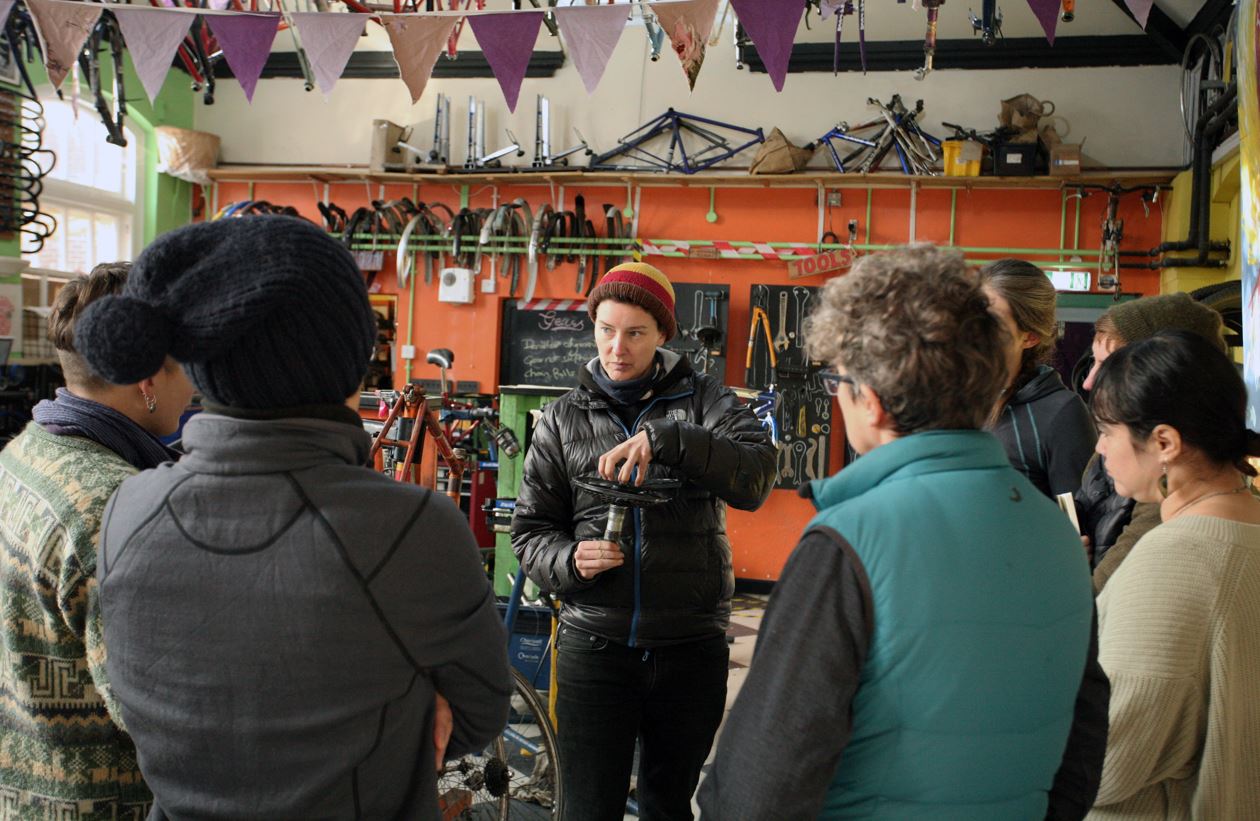 In what Inês Rahtz, Community and Workshop Coordinator at Broken Spoke, calls “a first for the cycling industry in the UK”, they are offering training and support for six people up to a level where they can pass the Cytech technical two qualification with Activate Cycle Academy. “The cycling industry has a massive gender diversity (and diversity in general) problem,” she says.
In what Inês Rahtz, Community and Workshop Coordinator at Broken Spoke, calls “a first for the cycling industry in the UK”, they are offering training and support for six people up to a level where they can pass the Cytech technical two qualification with Activate Cycle Academy. “The cycling industry has a massive gender diversity (and diversity in general) problem,” she says.
“Tools and mechanics aren’t gendered, anyone can fix a bike, but we only tend to see men doing that. When most mechanics in bike shops the world around are cis men it makes this wider hierarchy where men are the ones that teach and fix bikes. You’re never going to empower [more diverse] people to get involved unless you get people in those roles.”
Aside from inequality in the workplace, she realised this lack of representation could be putting female and non-binary customers off, who don’t see themselves represented behind the counter.
Glasgow charity, Bike for Good, is similarly launching “Scotland’s first bicycle mechanic traineeship for women and non-binary people” in January. The three- month pilot traineeship will see four women and non-binary people trained to a level 2 City and Guilds qualification, plus workshop experience, equipment and post-engagement support.
Bike for Good, along with Broken Spoke and the Bristol Bike Project, already run women and non-binary only “fix your own bike spaces” in a bid to diversify the work- shop. However, both realised this alone wasn’t enough to get women into mechanic roles. Feedback from the Bike for Good community revealed workshop environments can be off putting to women.
“I just can’t ever picture myself applying to a men-majority workshop apprenticeship or training,” one Fix Your Own Bike participant at Bike for Good said. “It would be intimidating and lonely”.
Team member Hannah H from Bike for Good added: “We need to train up a critical mass of women & non-binary cycle mechanics in order to address this imbalance and empower all genders to work as mechanics.”
Organisers say the new programme will help integrate trainees into Bike for Good by giving them experience in every mechanical role within the organisation. A women-led team will guide and support trainees and, the charity hopes by creating a supportive, inclusive, and diverse environment, “trainees will see a future for themselves in the bike industry”.
Oxford’s Broken Spoke has been run by women, including female lead mechanics, with cycle repair workshops specifically aimed at women, trans and gender non-variant events, for years. However, even there, job applicants did not carry great diversity. Despite this, Inês says following “a big recruitment drive in January, we were initially really disappointed to have only cis men apply. Then we realised: actually, we can’t expect them to apply if they don’t exist.”
 “You can put £1.5 grand into putting someone through the Cytech qualification but that doesn’t mean anything about their confidence as a mechanic, in an industry where you’re surrounded by men,” she says.
“You can put £1.5 grand into putting someone through the Cytech qualification but that doesn’t mean anything about their confidence as a mechanic, in an industry where you’re surrounded by men,” she says.
“It’s the practical and ongoing mentoring and practice in the workshop that makes you a great mechanic.”
She believes “a pathway rather than a qualification” could help, including post- training experience to build confidence – so that’s what they set out to offer. After initially advertising to their own volunteers, they opened up applications to the general public.
Suddenly there were female and non-binary applicants from as far afield as Hebden Bridge and London. One successful applicant, Achas, is a Broken Spoke volunteer looking to improve her skills, while Kat is a part time climate change consultant, working as a mechanic one day per week.
They will follow a structured pathway with mechanic-supervised repair sessions in the workshop, along with training sessions with Lucy Greaves, a mechanic from the Bristol Bike Project, before another block of supervised repair sessions. For Achas, “it took multiple prompts” before she applied. “So many people have asked me to step up into roles and my answer was usually ‘I don’t know if I can, I’m not qualified”.
“I was thinking, ‘Oh, this is gonna be a steep learning curve…’ and when I actually saw the syllabus, I was like, ‘actually I know something about most of it’.” Inês says this is quite common. “One thing we found a lot in our workshop volunteers and team, where we have quite a good mix of genders, is that women and non-binary folks often underestimate their abilities, as a generalisation, but men generally overestimate their ability and it can be hard without someone bigging you up, and telling you: ‘you can do it’.
“Especially when you don’t see other women in the industry, you’re likely to think: ‘I can’t do it’. It makes it a lot harder”.
Kat said she wouldn’t have become a mechanic without role models. “To have women in the lead mechanic roles was just not something I’d come across before and it was definitely ‘okay, this is a place where this can happen, that women can be the leading mechanics and be in that position of expertise’.
“There is this environment where all assumptions about yourself as in terms of gender, class, background, are left at the door and that is practised by the mechanics and the people that volunteer there. There was no knowledge assumed, you could try things out yourself – and you could ask for support.”
Achas said: “People don’t consciously walk into a space and look around and go, ‘How many people are there in the space like me?’,” but it does have an impact.
“There are just people that you want to be like, even if you don’t already count yourself like them, consciously or unconsciously”.
She adds: “in normal commercial bike shops, almost all my experiences have been incredibly patronising toward me.” Often if there aren’t women in the shop, asking about things like saddles and clothing can be awkward if you’re female, with an added risk you’ll be made to feel stupid for asking questions – or not taken seriously by staff.
Bike for Good is sponsored by Smarter Choices, a Transport Scotland initiative to help reduce car use, while Broken Spoke funding is from Active Oxfordshire, via Department for Transport cash. Josh Lenthall, from Active Oxfordshire, said getting more diverse people cycling matters to government and local authorities. He said: “rates of cycling, active travel and those working in the cycling industry are significantly lower amongst females, trans* and non-binary people – a pattern that needs to be broken. Projects like this begin to close that gap and enable people to be included in an activity that provides such freedom and benefits to its participants.”
Both Bike for Good, and Broken Spoke see its new mechanics programmes as about creating a more formal pool skilled mechanics with a broader diversity.
“We are hoping to create a critical mass of role models as well as people wanting to take up cycling,” Inês says.
